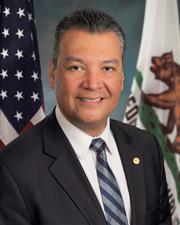0
0
0
Guaranteeing Overtime for Truckers Act
3/28/2025, 1:06 PM
Summary of Bill S 893
Bill 119 s 893 aims to amend the Fair Labor Standards Act of 1938 by removing the overtime wages exemption for certain employees. The Fair Labor Standards Act (FLSA) is a federal law that establishes minimum wage, overtime pay eligibility, recordkeeping, and child labor standards affecting full-time and part-time workers in the private sector and in federal, state, and local governments.
The bill seeks to ensure that all employees are fairly compensated for their work by eliminating the exemption that allows certain employees to be exempt from receiving overtime pay. Currently, some employees, such as those in executive, administrative, and professional positions, are exempt from receiving overtime pay if they meet certain criteria, such as earning a salary above a certain threshold.
By removing this exemption, the bill aims to protect workers' rights and ensure that they are compensated fairly for any overtime work they perform. This could potentially benefit a wide range of workers who are currently exempt from receiving overtime pay, ensuring that they are fairly compensated for their time and effort. In addition to removing the overtime wages exemption for certain employees, the bill also includes provisions for other purposes, which could potentially address other issues related to labor standards and protections. Overall, Bill 119 s 893 seeks to strengthen the Fair Labor Standards Act and ensure that all employees are treated fairly and compensated appropriately for their work.
The bill seeks to ensure that all employees are fairly compensated for their work by eliminating the exemption that allows certain employees to be exempt from receiving overtime pay. Currently, some employees, such as those in executive, administrative, and professional positions, are exempt from receiving overtime pay if they meet certain criteria, such as earning a salary above a certain threshold.
By removing this exemption, the bill aims to protect workers' rights and ensure that they are compensated fairly for any overtime work they perform. This could potentially benefit a wide range of workers who are currently exempt from receiving overtime pay, ensuring that they are fairly compensated for their time and effort. In addition to removing the overtime wages exemption for certain employees, the bill also includes provisions for other purposes, which could potentially address other issues related to labor standards and protections. Overall, Bill 119 s 893 seeks to strengthen the Fair Labor Standards Act and ensure that all employees are treated fairly and compensated appropriately for their work.
Read the Full Bill
Current Status of Bill S 893
Bill S 893 is currently in the status of Bill Introduced since March 6, 2025. Bill S 893 was introduced during Congress 119 and was introduced to the Senate on March 6, 2025. Bill S 893's most recent activity was Read twice and referred to the Committee on Health, Education, Labor, and Pensions. (Sponsor introductory remarks on measure: CR S1606-1607) as of March 6, 2025
Bipartisan Support of Bill S 893
Total Number of Sponsors
5Democrat Sponsors
5Republican Sponsors
0Unaffiliated Sponsors
0Total Number of Cosponsors
5Democrat Cosponsors
4Republican Cosponsors
0Unaffiliated Cosponsors
1Policy Area and Potential Impact of Bill S 893
Primary Policy Focus
Labor and EmploymentAlternate Title(s) of Bill S 893
A bill to amend the Fair Labor Standards Act of 1938 to remove the overtime wages exemption for certain employees, and for other purposes.
A bill to amend the Fair Labor Standards Act of 1938 to remove the overtime wages exemption for certain employees, and for other purposes.
Comments
Sponsors and Cosponsors of S 893
Latest Bills
ESTUARIES Act
Bill HR 3962December 13, 2025
Federal Maritime Commission Reauthorization Act of 2025
Bill HR 4183December 13, 2025
National Defense Authorization Act for Fiscal Year 2026
Bill S 1071December 13, 2025
Enduring Justice for Victims of Trafficking Act
Bill S 2584December 13, 2025
Technical Corrections to the Northwestern New Mexico Rural Water Projects Act, Taos Pueblo Indian Water Rights Settlement Act, and Aamodt Litigation Settlement Act
Bill S 640December 13, 2025
Incentivizing New Ventures and Economic Strength Through Capital Formation Act of 2025
Bill HR 3383December 13, 2025
BOWOW Act of 2025
Bill HR 4638December 13, 2025
Northern Mariana Islands Small Business Access Act
Bill HR 3496December 13, 2025
Wildfire Risk Evaluation Act
Bill HR 3924December 13, 2025
Energy Choice Act
Bill HR 3699December 13, 2025





